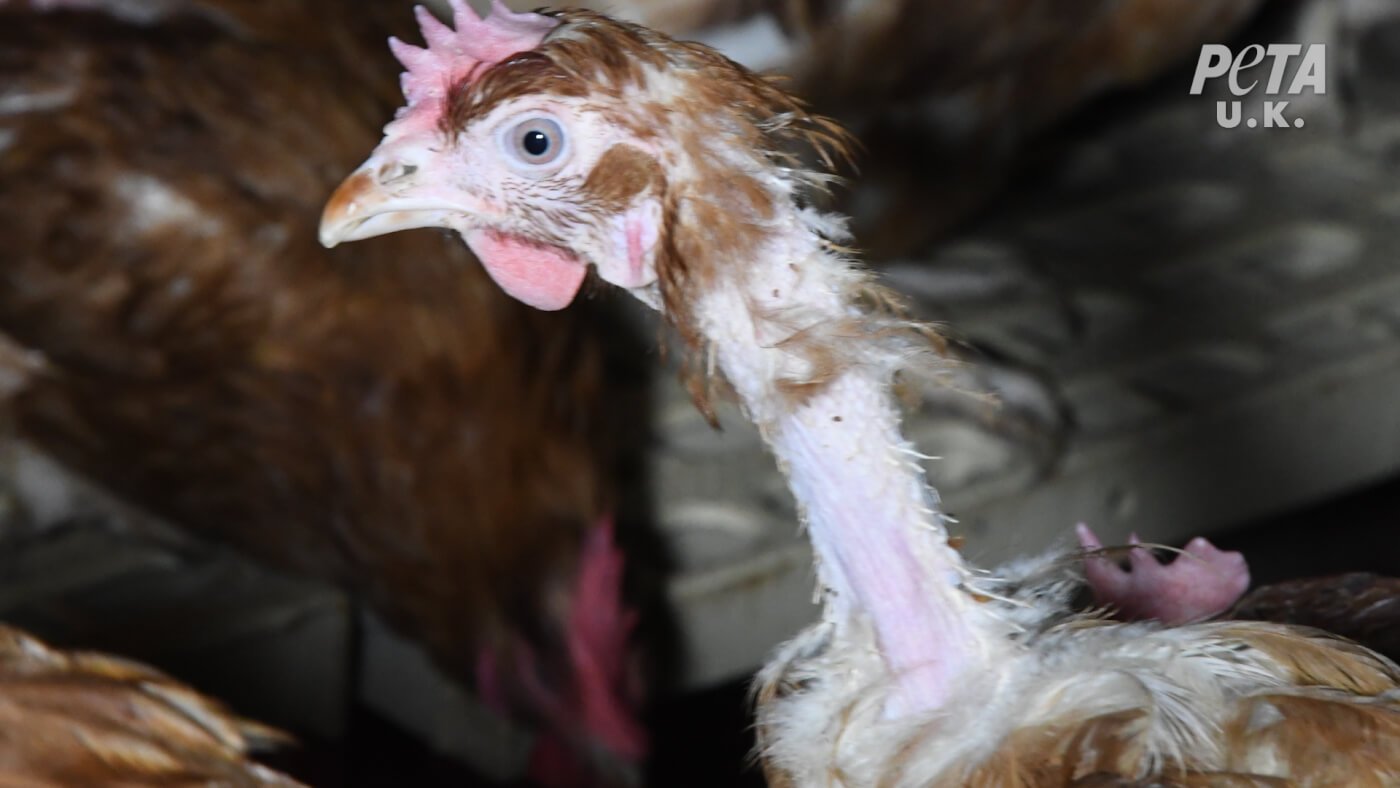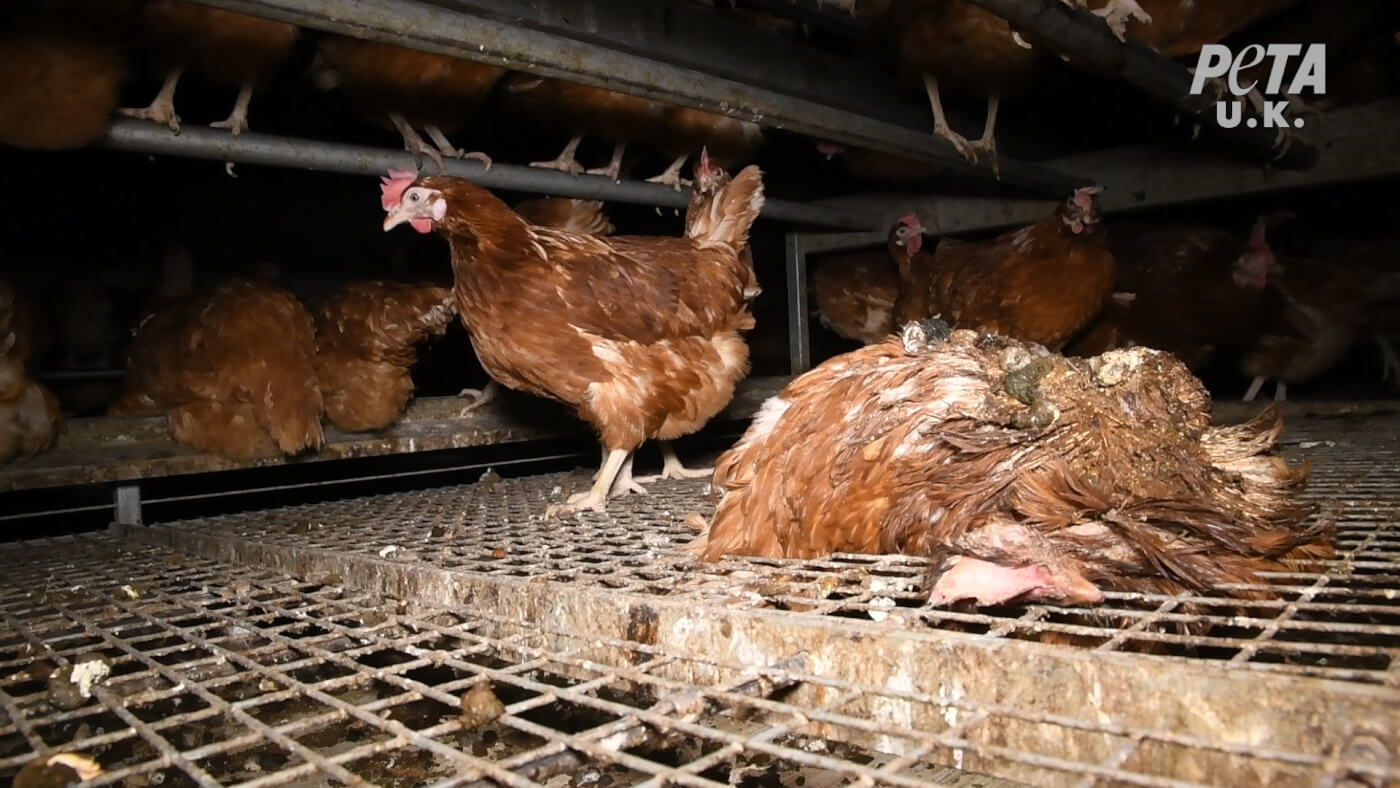Chickens Left to Rot on Happy Egg Co. Supplier Farms
Britain’s Happy Egg Co., owned by Noble Foods, is one of the largest “free-range” egg producers in the U.K. PETA U.K. visited three farms that supply eggs to the brand, which are sold in all major supermarkets in the U.K.
While the company’s marketing materials depict “happy hens” roaming vast green fields, PETA U.K.’s footage tells a different story. Take a look at the way hens really live on “free-range” farms.
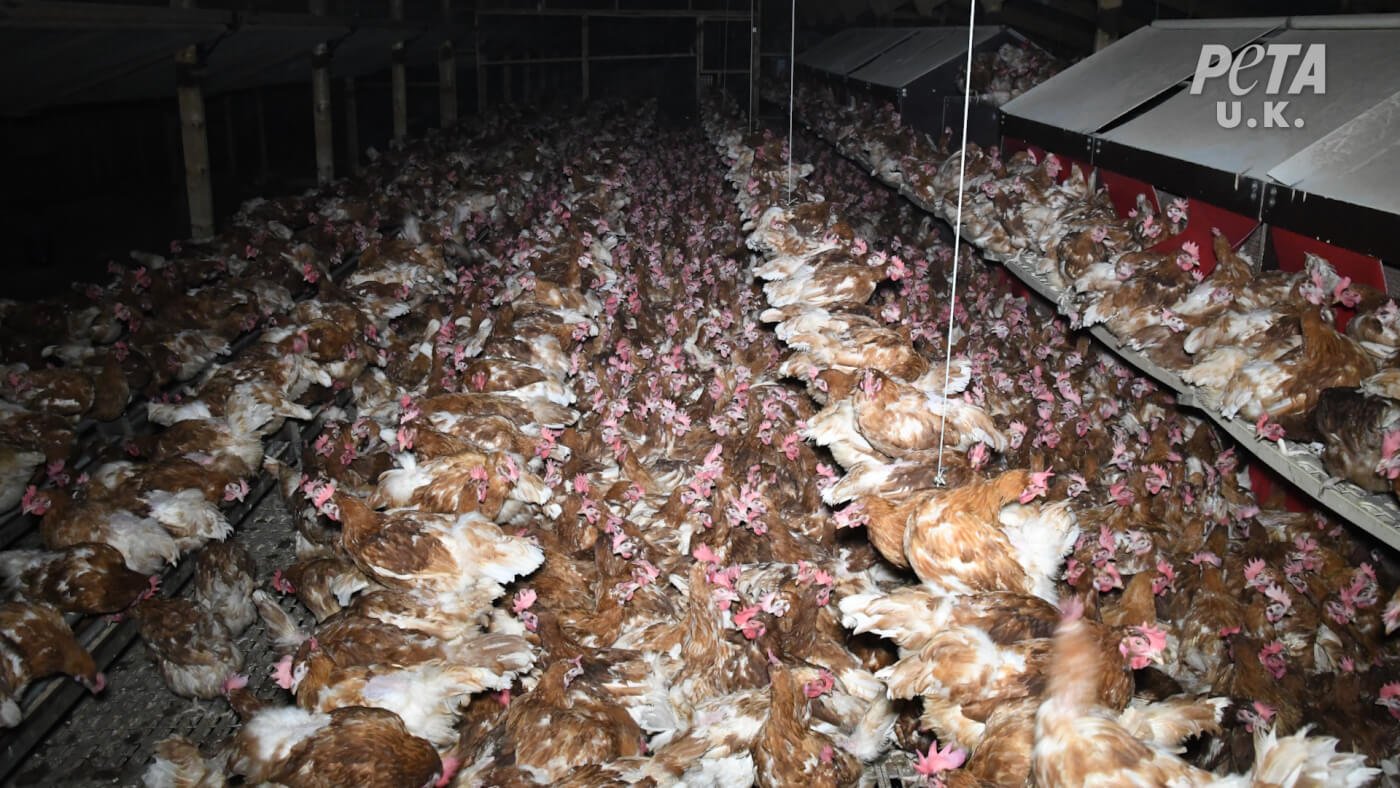
Crammed Together
Even though the birds weren’t kept in cages, these disingenuously labeled “free-range” hens had little room to “range” inside jam-packed sheds. Such cramped conditions can prevent chickens from engaging in natural behavior, such as foraging, flapping their wings, and comfortably roosting.
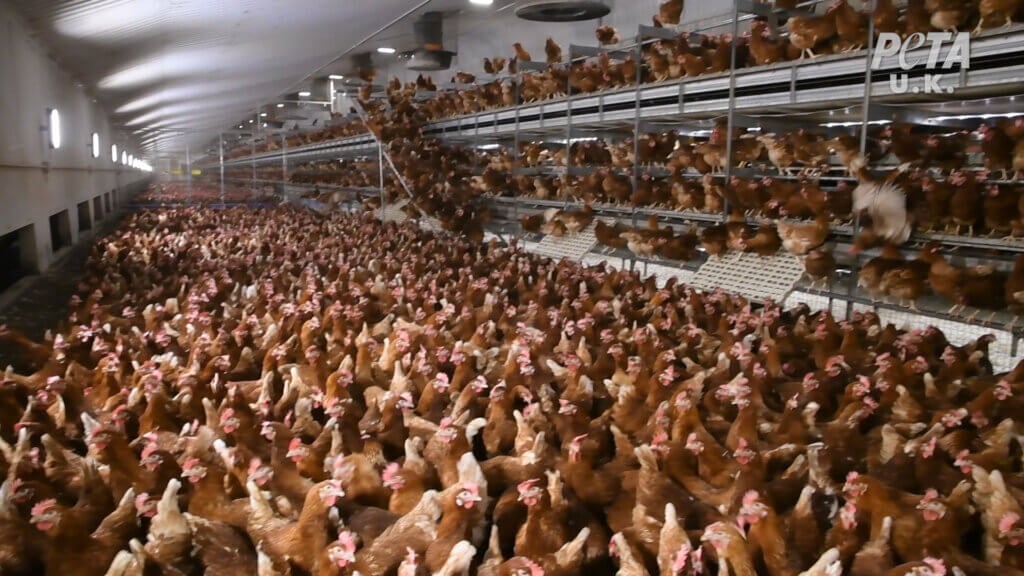
In addition, the hens on Happy Egg supplier farms were provided with only very minimal enrichment (items intended to stimulate their sharp minds). They were given just two “enrichment items” per 1,000 birds—a plastic bottle and a bale of hay—which most of them were not even able to access.

No Green, Rolling Pastures
The company’s marketing materials depict idyllic scenes in which chickens are given acres of green fields, dotted with bushes and trees, to explore. Yet the outdoor space filmed at one farm consisted of nothing more than bare, muddy ground with only a few dilapidated wooden shelters. Such a barren environment is unappealing to these naturally cautious prey animals and meant that few hens were filmed actually venturing out of the shed, let alone foraging in foliage or perching in trees, as Happy Egg Co. claims they do.
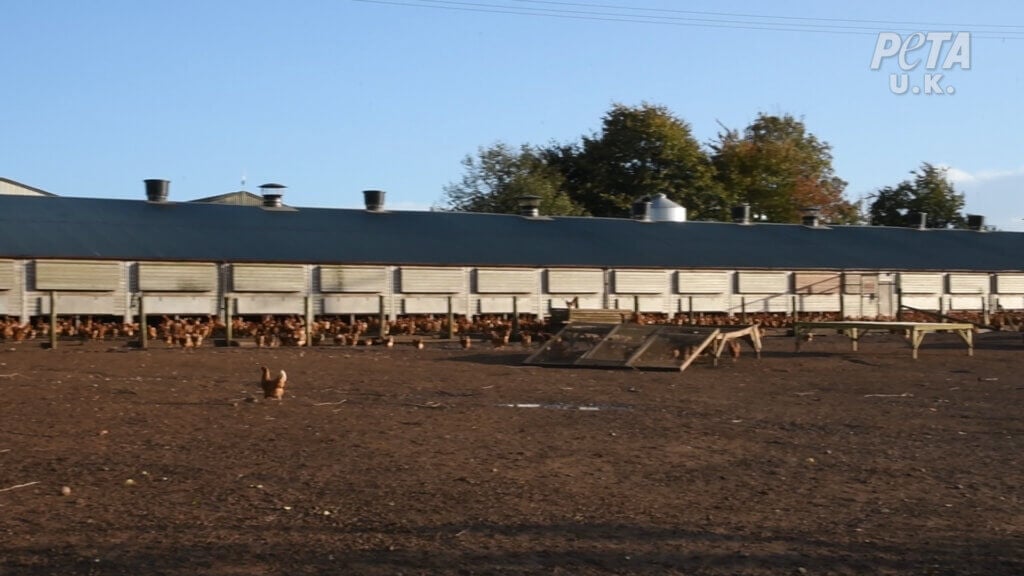
Mutilated and Maimed
The majority—if not all—of the birds filmed on farms supplying Happy Egg Co. had portions of their beaks cut off, which is known as “debeaking.” The tip of the beak is extremely sensitive, and its removal can cause acute and chronic pain. It can also cause neuromas—masses of nerve tissue that can lead to persistent, lifelong pain.
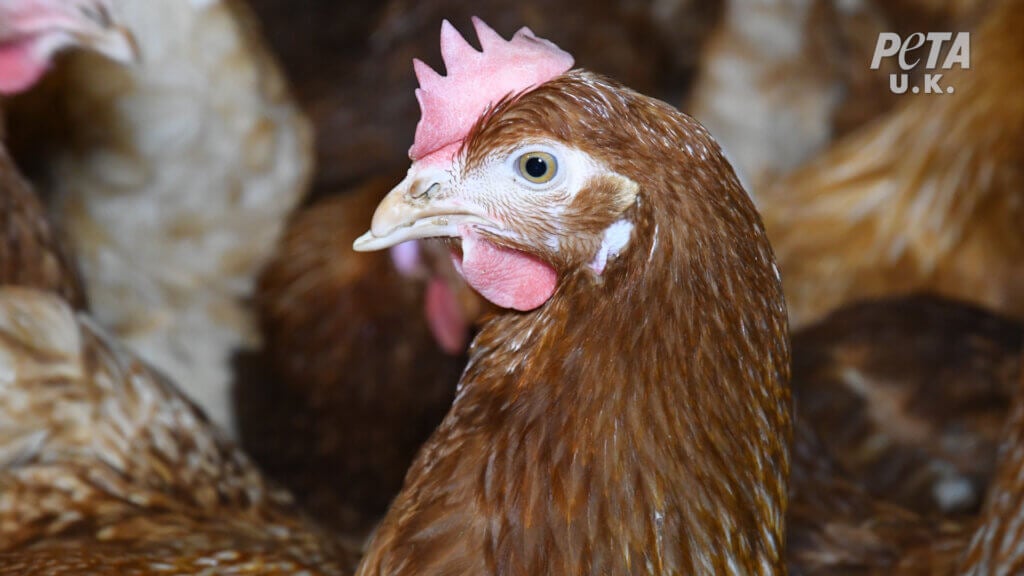
This mutilation is performed in an attempt to prevent hens from pecking one another or even themselves—a common occurrence in conditions that block birds from behaving naturally. Despite widespread debeaking, PETA U.K.’s footage shows that some birds were practically featherless. Others had raw skin and bloody wounds.

Exploited and Discarded
Wild chickens naturally lay just 10 to 15 eggs per year and only during breeding season. Hens on egg farms have been selectively bred and physiologically manipulated to produce unnaturally high numbers of eggs. Producing so many eggs takes a heavy toll on hens’ bodies. By the time they are around 18 months old, their egg production has declined and they’re sent to slaughter.
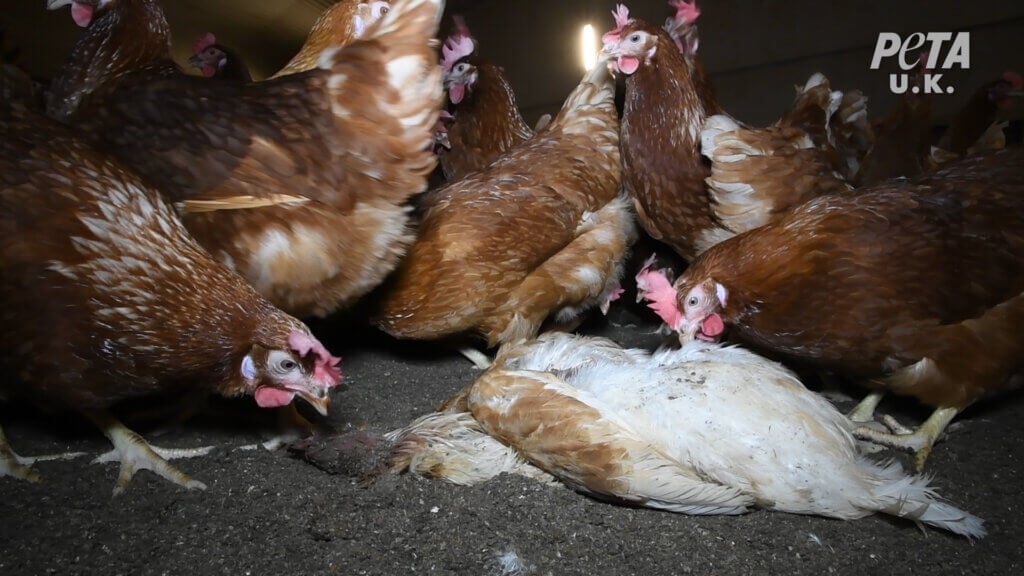

Crappy Eggs, Not Happy Eggs
Happy Egg Co. presents itself in a bright, cheery way to mislead consumers into believing that its products come from “happy hens.” A whole section of its website is dedicated to the absurd claim that the hens are “happy.”
In reality, the hens PETA U.K. filmed live in filthy, severely crowded sheds and are routinely subjected to painful mutilations. As a result, they are stressed and frustrated and may peck each other until their skin is red, raw, and bleeding.
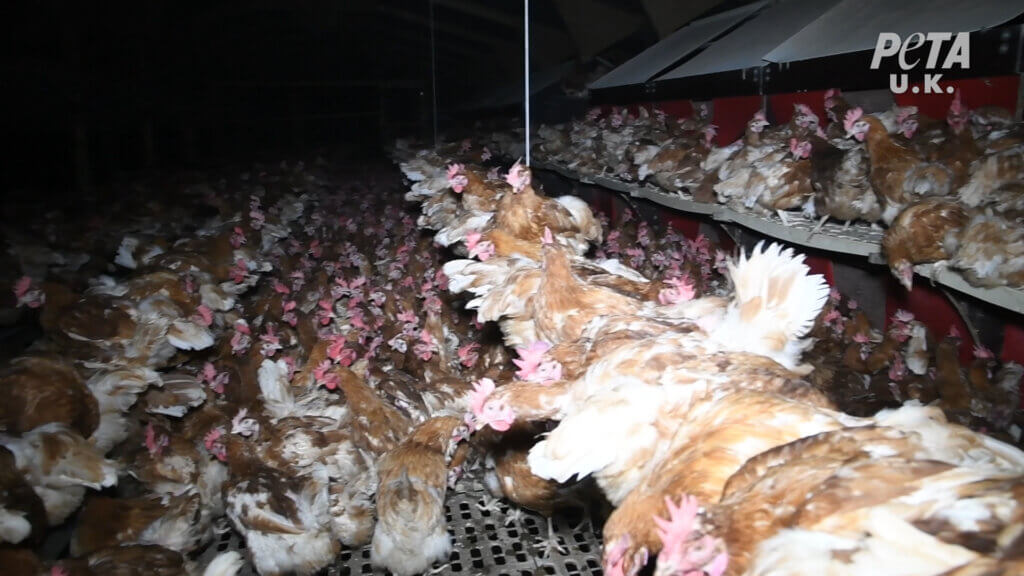
Chickens are smart, sensitive, social animals who need to preen their feathers, take dust baths, roost at night in order to feel safe, and spend significant amounts of time foraging and exploring. Because they can’t perspire, they cool themselves by dipping their beaks in cold water or by flapping their wings. The hens on the Happy Egg Co. supplier farms that PETA U.K. visited are unable to do this, causing tremendous psychological and physical anguish.
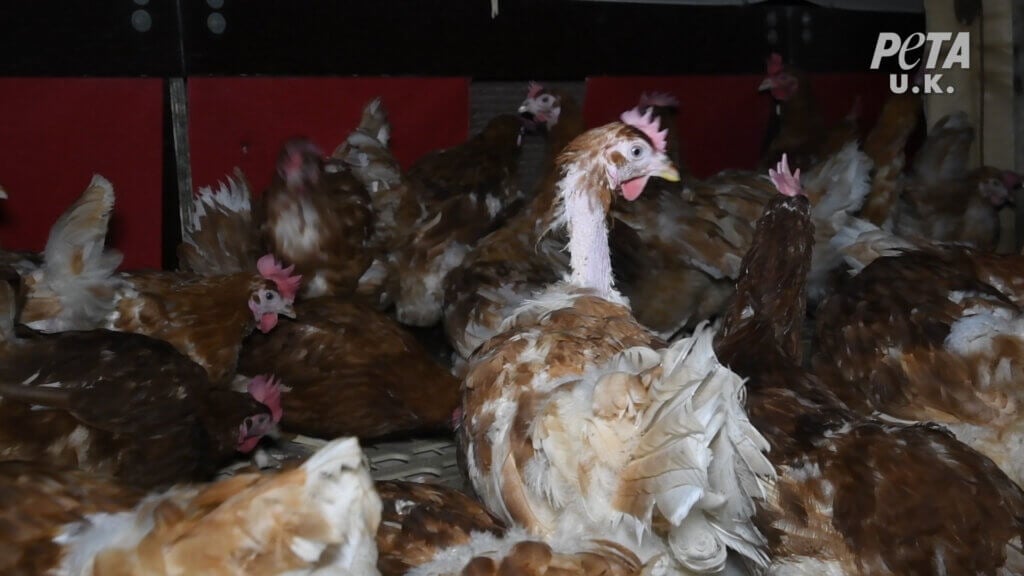
This latest investigation shows that whenever animals are used for profit, they always suffer..
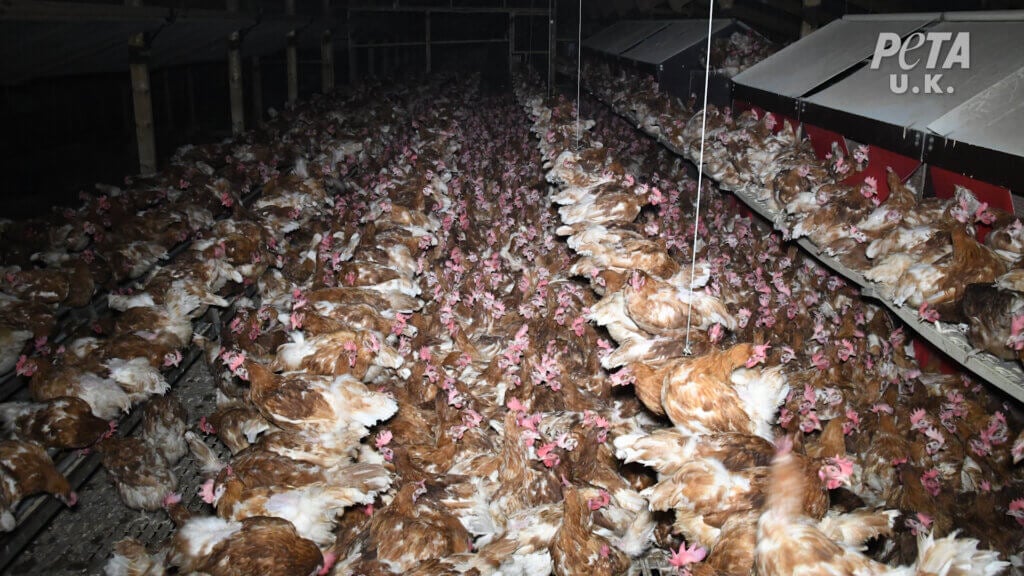
What You Can Do
Don’t be duped. The only label that guarantees an animal-friendly product is “vegan.” The best way to help hens is to stop eating all eggs. There are so many great substitutes for eggs that you can easily continue to eat your favorite meals—just swap a few ingredients. Vegan egg replacers can be bought in supermarkets and health food shops and offer everything you want in an egg with none of the cruelty.

